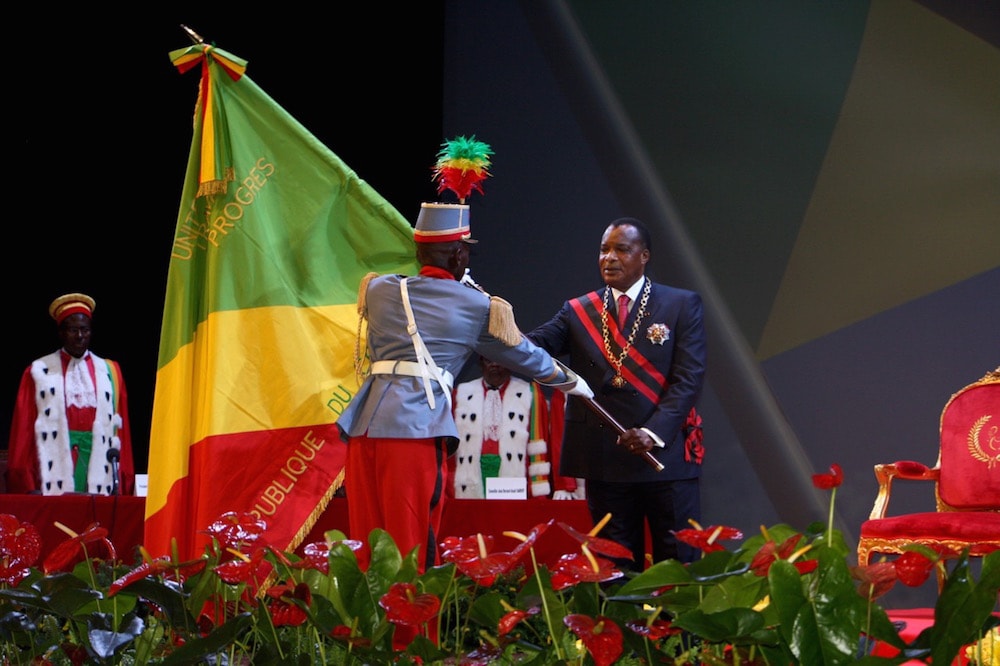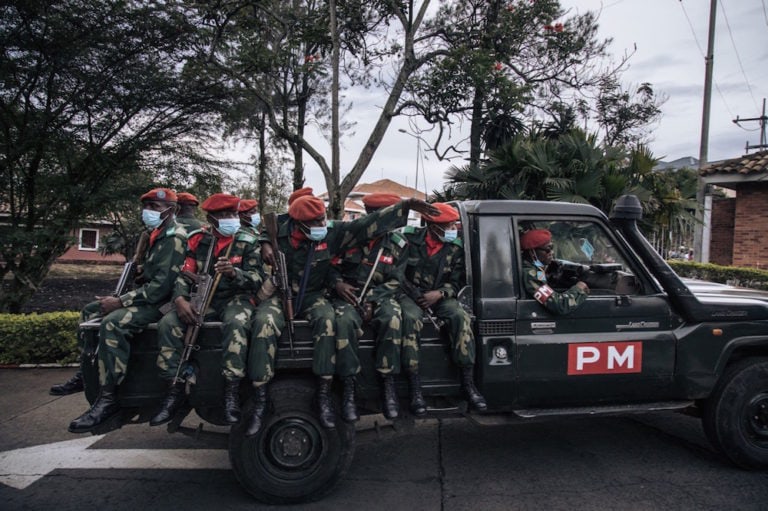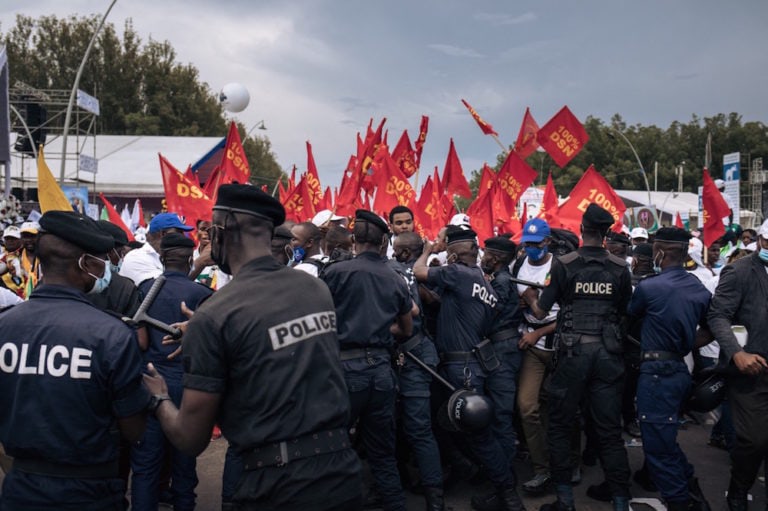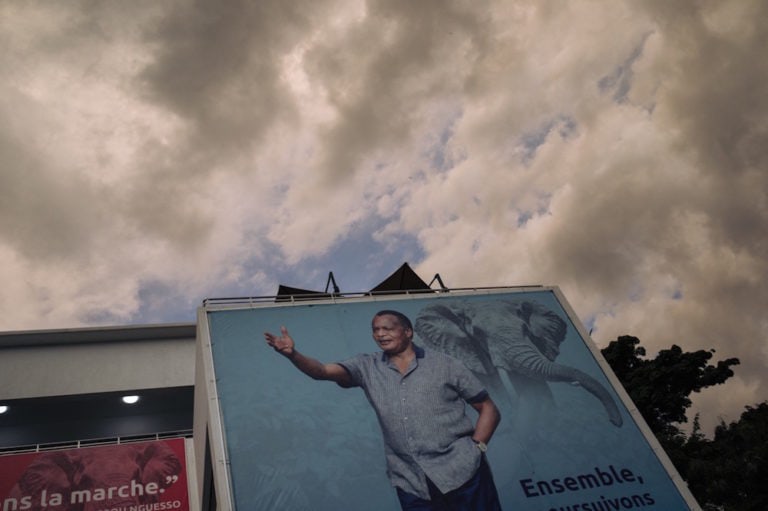Cartoonist and publisher of a satirical magazine, Raymond Malonga, was arrested at a clinic while receiving treatment for malaria and quarantined in a prison section for persons with COVID-19.
This statement was originally published on rsf.org on 5 February 2021.
Reporters Without Borders (RSF) calls for the immediate release of Raymond Malonga, a well-known Congolese cartoonist and satirical magazine publisher, who has been held in a completely illegal manner over an article ever since plainclothesmen snatched him from his bed in a Brazzaville hospital on 2 February.
It is hard to see Malonga’s detention as anything other than a targeted reprisal. According to the information obtained by RSF, he was hospitalized with a malaria attack in a clinic near his home when agents from the Central Intelligence and Documentation Department (CID) arrived and took him to Brazzaville’s main prison, where he is now held in a quarantine area for detainees with Covid-19. His arrest reportedly follows summonses to which he did not respond.
He was arrested for an article published in the 18 January issue of his satirical newspaper Sel-Piment, which is very critical of the authorities. A cartoon in the article came from the Sacer Infos Congo website, where it accompanied a story about embezzlement accusations against Georgette Okemba, the wife of Jean-Dominique “JDO” Okemba, who is the nephew of President Denis Sassou Nguesso and heads the National Security Council, which oversees all of the Republic of Congo’s military and police services.
The country’s president for 36 of the past 41 years, Nguesso is currently seeking yet another term in the presidential election scheduled for 21 March.
“Having the intelligence services arrest a journalist on his hospital bed as if he were a dangerous terrorist for nothing more than an alleged case of defamation speaks to clearly to the political and punitive nature of this measure,” said Arnaud Froger, the head of RSF’s Africa desk.
“The Republic of Congo’s laws are very clear. They do not allow a journalist to be detained in a defamation case unless and until he has been definitively convicted. With just weeks to go to the presidential election, this arrest sends a very negative signal and confirms the fragility of the environment for Congolese journalists. We call for this journalist’s release in accordance with the laws in effect.”
Several sources told RSF that the Congolese media regulator, the Higher Council for Freedom of Communication (CSLC), has ordered Sel-Piment’s suspension. The CSLC did not respond to RSF’s repeated requests for information about this decision and about Malonga’s arrest.
Although relatively infrequent, arrests of journalists in the Republic of Congo sometimes assume a very political dimension and reflect the government’s intense hostility towards the most outspoken journalists.
The circumstances of Malonga’s arrest recall that of newspaper publisher Ghys Fortuné Bemba, whose independent weekly Talassa was suspended on the eve of his arrest by the intelligence services in January 2017. After being held for 18 months, he was released following an energetic campaign on his behalf in which RSF played a leading role.
Thereafter, he left the country for security reasons. In his book De l’enfer à la liberté (From hell to freedom), published in 2019, he described the appalling conditions in which he was held, which included solitary confinement without even being able to talk to guards, the lack of a toilet, water and electricity in his cell, and being denied adequate food.
The Republic of Congo, also known as Congo-Brazzaville, is ranked 118th out of 180 countries in RSF’s 2020 World Press Freedom Index.



